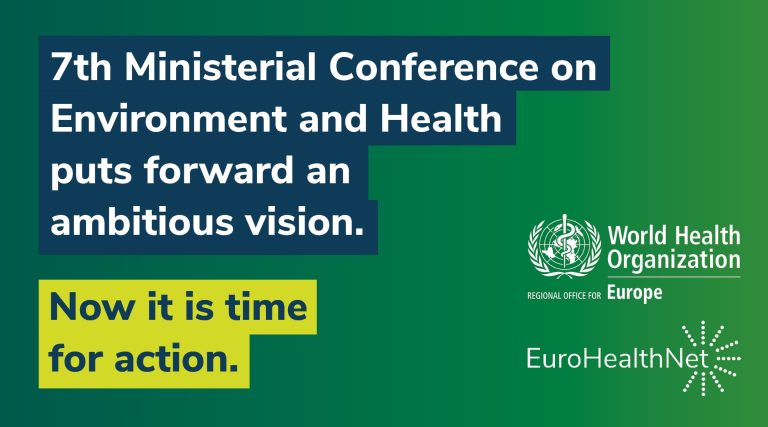The recent WHO 7th Ministerial Conference on Environment and Health, held in Budapest, brought together experts, policymakers, and stakeholders to address pressing environmental and health challenges. Countries who attended have adopted the Budapest Declaration, which prioritises urgent, wide-ranging action on health challenges linked to climate change, environmental pollution, biodiversity loss and land degradation.
BlueAdapt’s team from EuroHealthNet showcased BlueAdapt’s research goals during the conference. In this blog post, they share the key takeaways from the conference, highlighting the urgent need to address coastal water pollution in combating climate change risks for public health.
Importance of Policy Engagement:
One of the significant takeaways from the conference was the importance of policy engagement in tackling environmental and health challenges. BlueAdapt’s presence at the conference exemplified the critical role of research projects and their ability to inform policymakers about the specific risks coastal regions face due to climate change. Policy engagement is crucial in bridging the gap between scientific findings and practical action to protect public health.
Urgency in Addressing Coastal Water Pollution:
As climate change intensifies, coastal regions are witnessing rising temperatures and water pollution, creating favourable conditions for the proliferation of pathogens. This, in turn, poses health risks to those who spend time in these waters. While promising solutions for reducing water pollution in the Budapest Declaration, there is scope for further addressing the role of coastal waters. BlueAdapt’s work highlights the urgency in addressing this issue and calls for greater attention from policymakers.
Short summary of conference commitments on water pollution:
- Minimise untreated wastewater and biosolid release, promoting safe reuse
- Update regulations for climate-resilient water services
- Integrate nature and biodiversity in health policies using the One Health approach for human, animal, and ecosystem wellbeing
The call for an expanded One Health approach
The conference emphasised the importance of the One Health approach, which advocates for integrating human, animal, and environmental health policies to achieve comprehensive and sustainable solutions. BlueAdapt supports this approach and strives to expand its scope by considering the specific needs of coastal communities and promoting equity in policy initiatives. By recognizing the interdependence of ecosystems and human well-being, the One Health approach can create more effective and resilient policies.
Informing future policy
The WHO 7th Ministerial Conference on Environment and Health was an important platform for addressing the challenges posed by climate change to public health. The conference highlighted the critical connection between climate change and public health. While progress was made in addressing water pollution and promoting the One Health approach, there remains a need to focus on the specific challenges faced by coastal communities.
Collaborative efforts, research, and policy initiatives, as exemplified by BlueAdapt, are essential to combat climate change’s adverse effects and protect the health of people living in and visiting Europe’s coastal areas. BlueAdapt looks forward to engaging with policymakers and experts to explore the specific impacts on coastal areas and identify necessary measures to reduce health risks effectively.



